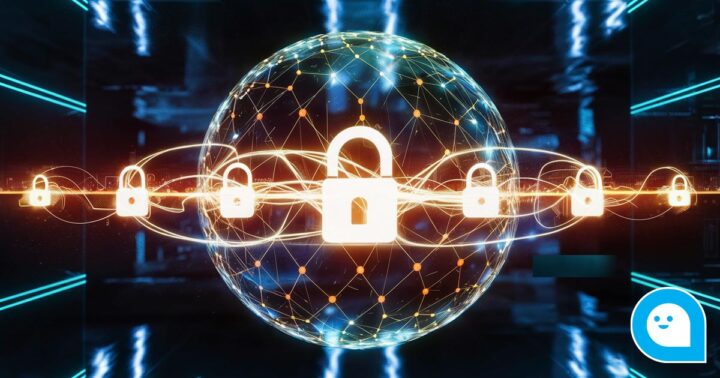However, as with any digital service, security is paramount. In UCaaS, encryption plays a critical role in ensuring that communications and data remain secure. This blog will explore three key types of UCaaS security encryption: communication encryption, data center encryption, and end-to-end data encryption.
Communication Encryption
Communication encryption is essential for protecting real-time communication, such as voice and video calls, messaging, and collaboration tools. This type of encryption ensures that data transmitted between users remains confidential and secure.
Key Aspects of Communication Encryption:
- Transport Layer Security (TLS): TLS is a widely used protocol that ensures privacy between communicating applications and their users on the Internet. It encrypts data sent over the network, making it unreadable to anyone who intercepts it.
- Secure Real-time Transport Protocol (SRTP): SRTP adds security to voice and video calls. It provides encryption, message authentication, and integrity, preventing eavesdropping and tampering.
- HTTPS: Hypertext Transfer Protocol Secure (HTTPS) is essential for encrypting web-based communications. It ensures that any data exchanged between the user’s browser and the UCaaS service is secure.
Benefits of Communication Encryption:
- Confidentiality: Only the intended recipients can access the content of communications.
- Integrity: Ensures that the data is not altered during transmission.
- Authentication: Verifies the identity of communicating parties, reducing the risk of impersonation attacks.
Data Center Encryption
Data center encryption focuses on securing the data stored in UCaaS providers’ data centers. This type of encryption ensures that data at rest is protected, mitigating risks associated with data breaches.
Key Aspects of Data Center Encryption:
- Disk Encryption: Encrypts the entire disk on which data resides, ensuring that data is inaccessible without proper decryption keys.
- Database Encryption: Protects sensitive information stored in databases by encrypting the data fields or entire databases.
- File-Level Encryption: Encrypts specific files or directories, adding an additional layer of security for sensitive data.
Benefits of Data Center Encryption:
- Data Protection: Even if physical storage devices are stolen or accessed without authorization, encrypted data remains secure.
- Compliance: Helps organizations meet regulatory requirements for data protection, such as GDPR, HIPAA, and others.
- Risk Mitigation: Reduces the risk of data breaches and the potential financial and reputational damage.
End-to-End Data Encryption
End-to-end data encryption ensures that data is encrypted on the sender’s device and only decrypted on the recipient’s device. This method provides the highest level of security by ensuring that no intermediaries, including UCaaS providers, can access the data.
Key Aspects of End-to-End Data Encryption:
- Public Key Infrastructure (PKI): Uses pairs of public and private keys to encrypt and decrypt messages. The sender encrypts the message with the recipient’s public key, which can only be decrypted with the recipient’s private key.
- Zero Trust Architecture: Ensures that every communication and data transfer is encrypted and authenticated, assuming no implicit trust between parties or within the network.
- Secure Messaging Protocols: Such as Signal Protocol, which provides end-to-end encryption for messaging services.
Benefits of End-to-End Data Encryption:
- Ultimate Privacy: Ensures that only the intended recipients can read the data, protecting it from unauthorized access at any point in the communication chain.
- Security Assurance: Provides a high level of assurance that data remains confidential, even if intercepted.
- User Trust: Builds user confidence in the security of the communication system, encouraging more widespread adoption.
In the world of UCaaS, encryption is a cornerstone of security. Communication encryption protects data in transit, data center encryption secures data at rest, and end-to-end encryption ensures that data is private from the point of creation to the point of consumption. By understanding and implementing these types of encryption, organizations can enhance their security posture, protect sensitive information, and maintain trust with their users.
Ensuring comprehensive encryption across all levels of communication and data storage is crucial for any business leveraging UCaaS solutions. By doing so, organizations can safeguard their operations against potential threats and ensure the privacy and integrity of their communications.

